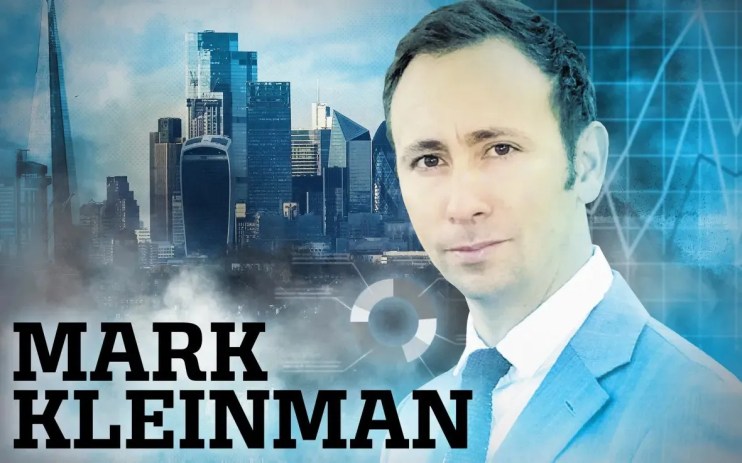Mark Kleinman: BHP’s Anglo bid, Getir’s lack of delivery and what next for Nationwide

Mark Kleinman is Sky News’ City Editor and writes a weekly column for City A.M., this week on the bid for Anglo American, Getir’s struggles and Nationwide’s Virgin Money takeover
Anglo can’t bank on a full-blown auction
It’s the opportunity Mike Henry has been waiting for. Four years after assuming control of BHP, his moment to strike arrived. Anglo American, beset by a lacklustre share price and falling valuation by comparison with its global peers, has become a sitting duck for the behemoths of the mining industry.
The opening shot in what could be the sector’s most hotly contested auctions for years was, nevertheless, an odd one.
Henry’s bid is structured in a way which is both highly conditional and, layered with the political obstacles BHP will face in South Africa, virtually impossible to pull off. The element of surprise, often so vital in large corporate M&A situations, has been lost.
Nevertheless, BHP’s in-house dealmaking capability has been reinforced under Henry. Anglo’s emphatic rejection of its indicative offer last week will have been anticipated.
The next shot, surely, will be an improved all-stock offer, but one which removes some of the conditionality attached to the original proposal.
But if that, too, is rejected, it is hard to see the rest of the industry remaining idly on the sidelines.
My money would be on Rio Tinto, Barrick Gold and Glencore all attempting to play some sort of role in the industry’s most significant deal in years. How could they resist? And yet Anglo American investors should not be banking on a full-blown auction.
With a market capitalisation substantially larger than any of its possible rivals for Anglo, BHP holds the strongest hand. It may yet decide to sweeten its interest with cash, although its most persuasive conversations are likely to have to be with the South African government, which has the ability to stymie a deal altogether.
Anglo’s board’s priority is to focus on getting the right price – and those making ludicrous and hysterical comments about chairman Stuart Chambers’ previous roles at UK-listed companies (Arm Holdings and can-maker Rexam among them) which became takeover targets, ought to brush up on boards’ fiduciary duties.
Extracting the kind of price being talked about by some analysts and investors won’t be easy. The execution risks attached to a deal are enormous. Mining a price much deeper than BHP’s initial offer is not as likely as some think.
Getir delivers financial carnage direct to the door
It’s the definition of throwing good money after bad: shareholders in Getir, the rapid grocery delivery platform, have agreed to inject tens of millions of Euros into it to facilitate the closure of its operations in the UK, Germany and the Netherlands.
In reality, they had little choice but to follow the more than $2bn splurged on Getir since it launched in 2015 – orderly wind-downs of large, logistics-led operations don’t come cheap.
It’s hardly revelatory to cite Getir as a prime example of the fast grocery delivery model’s failure; it is, though, a painful reminder for investors as blue-chip as Mubadala, the Abu Dhabi sovereign wealth fund, Sequoia Capital and Tiger Global, that much of this financial carnage should have been foreseen.
The company promised much but – literally – delivered too little.
The industry’s unit economics left companies such as Getir, Doordash and GoPuff hungry for capital after a pandemic gold rush which left their owners believing their breakneck growth was sustainable.
It turned out to be an illusion. Shareholders are now left to lick their wounds. Insiders say they will allocate a portion of the additional funding to growing the core Turkish delivery business, while exiting Europe and ancillary operations such as its ride-hailing app, Bitaksi.
Monday’s announcement, which confirmed my reporting of recent weeks, was long on meaningless platitudes towards staff and short on detail. Will tech financiers heed the lessons of the rapid grocery delivery boom? I doubt it – it will simply migrate into another area of e-commerce where the potential returns are exaggerated and early investors blithely pile in.
Getir – which has been Tottenham Hotspur’s training wear sponsor for the past three years – should prove to be a cautionary tale. Like Arsenal fans’ favourite putdown of their north London rivals as ‘Spursy’, the company promised much but – literally – delivered too little.
Nationwide’s Virgin bid looks cheap as bank stocks soar
Nineteen million members, two deals, no votes. That’s the aggregate scoreline from two seismically important transactions in Britain’s mutually owned financial services sector.
The Coventry and Nationwide building societies’ transformational takeovers, respectively, of the Co-operative Bank and Virgin Money total close to £4bn of M&A activity in which the owners of the two acquiring institutions will not have a say.
Yet so far, only a modicum of protest has been registered, despite efforts in some quarters to whip up a more potent storm.
More pertinent is the question that shareholders in Virgin Money might wish to pose: has their board sold them short in valuation terms? Since the deal was announced on March 7, share prices across the UK banking sector have risen by an average of over twenty per cent. That’s left some investors wondering whether a renegotiation of the terms might be possible.
The price of 220p-a-share looked reasonable at the time, but less so now given rising valuations across the industry. In recent weeks there has also been vague talk of an interloper, although there is little sign of that being substantiated. Virgin Money shareholders are more likely to have luck pushing for a bump in the offer than Nationwide members are in pushing for a vote.
